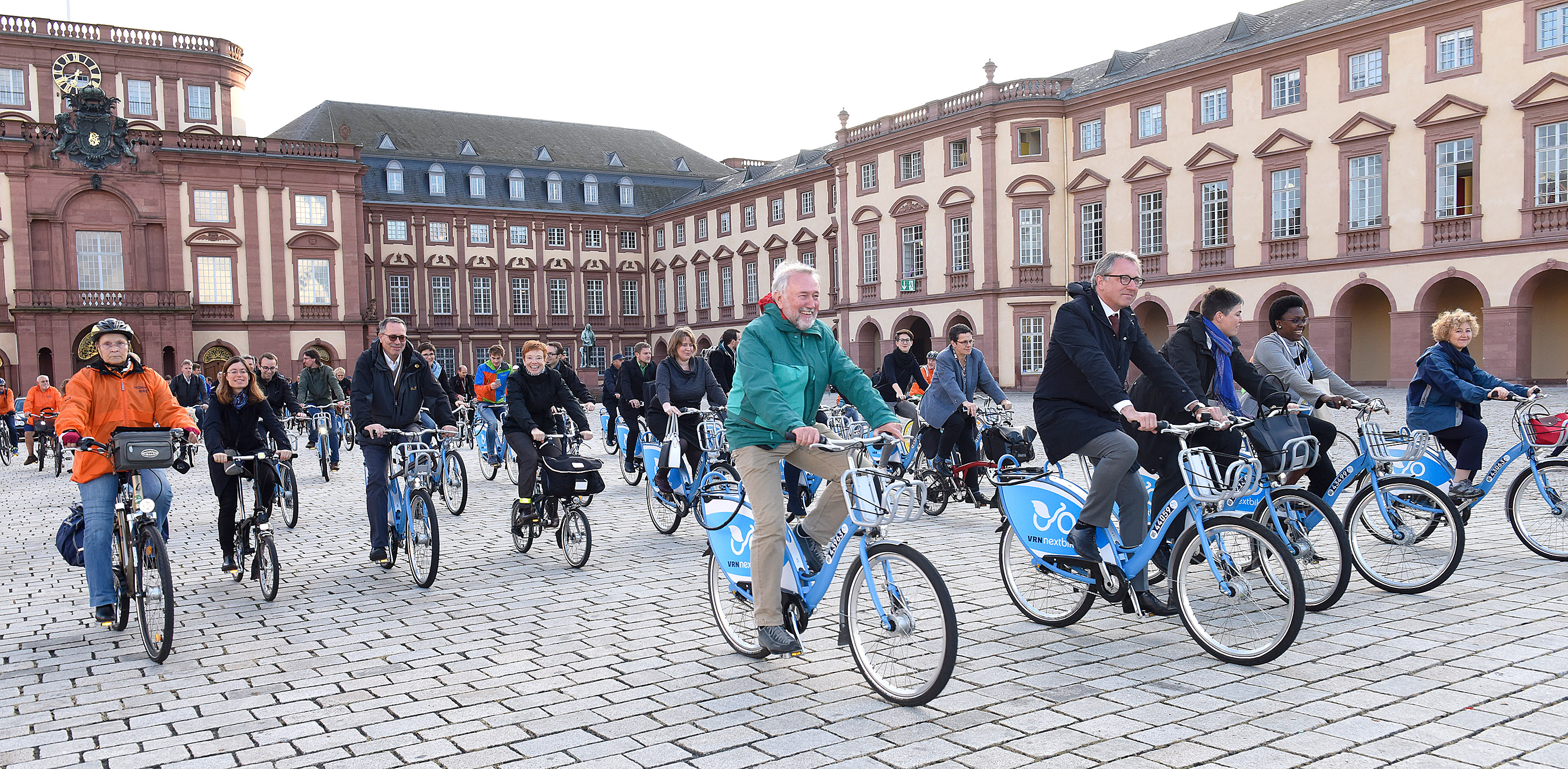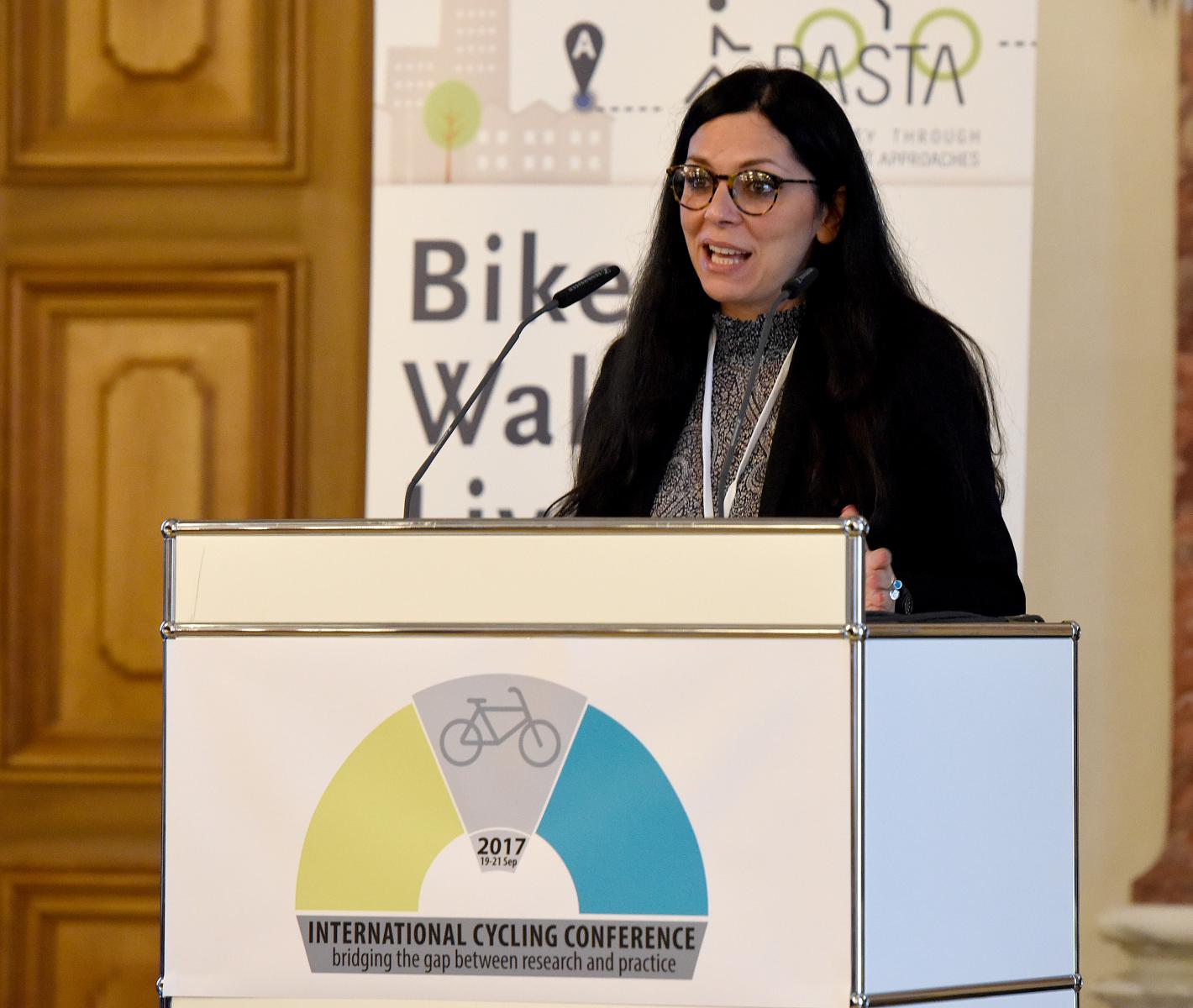
Global cycling research and practice meet in Mannheim to celebrate the bike’s 200th birthday
200 years ago, in 1817, Karl von Drais built the first “running machine”, the predecessor of the modern bicycle, in the city of Mannheim (Germany). To celebrate his invention and to highlight its role for today’s mobility system, the German Federal Environment Agency (Umweltbundesamt) organised a conference in cooperation with the city administration and several other partners, amongst which ECF and its global network Scientists for Cycling.
With 292 participants from all around the globe, the International Cycling Conference aimed to “bridge the gap” between research and practice in cycling by bringing together academics, planners and decision-makers around themes like infrastructure, behaviour change, public health, policies and strategies, culture and education, economics, data and digitalisation, road safety, electric cycling, bike-sharing and intermodality. The session on the economic benefits of cycling was moderated by ECF, using the 2016 report on the EU Cycling Economy as a base.
What made the conference a truly global scientific event was the “International Mosaic”, linking together the different parts and sessions. In this format, six renowned experts on cycling policy from different countries presented their own “stories” on challenges and chances for cycling in their countries: Chile, India, Uganda, Mexico, Portugal, and Taiwan. In this way, the Mosaic provided a picture of the role that the bicycle can play with regard to urban and rural mobility, but also to economic and social issues around the world.
In the frame of the ICC, the City of Mannheim celebrated the award of its Bertha-And-Carl-Benz-Prize to World Bicycle Relief, an organisation delivering bicycles to students, health care workers and entrepreneurs through both philanthropic and social enterprise programs in the Global South. In her laudatory speech, WCA board member Amanda Ngabirano from Uganda stressed the role of the bicycle in breaking chains of poverty and contributing to the achievement of the UN Sustainable Development Goals.
 The political sphere showed strong commitment to promoting cycling and active mobility during the conference. In her speech, the Councillor of Rome in charge of mobility, Linda Meleo, stressed her support for the EU Cycling Strategy development process initiated by ECF. On the last conference day, which was organised by the Transport, Health and Environment Pan-European Programme, an initiative by WHO Europe and UNECE, experts from four German federal ministries (Environment, Health, Economy and Transport) discussed the best policies for cycling promotion with their international counterparts.
The political sphere showed strong commitment to promoting cycling and active mobility during the conference. In her speech, the Councillor of Rome in charge of mobility, Linda Meleo, stressed her support for the EU Cycling Strategy development process initiated by ECF. On the last conference day, which was organised by the Transport, Health and Environment Pan-European Programme, an initiative by WHO Europe and UNECE, experts from four German federal ministries (Environment, Health, Economy and Transport) discussed the best policies for cycling promotion with their international counterparts.
Finally, the conference was also the occasion for the PASTA project to present its results, including an updated version of the World Health Organization's Health Economic Assessment (HEAT) tool designed to help urban planners, transport and health practitioners make the case for new investment in active mobility, and good practice examples from cities across Europe in the promotion of active mobility as part of transport infrastructure.
Network/Project Involved:
Contact the author
Recent news!
Upcoming events
Contact Us
Avenue des Arts, 7-8
Postal address: Rue de la Charité, 22
1210 Brussels, Belgium









